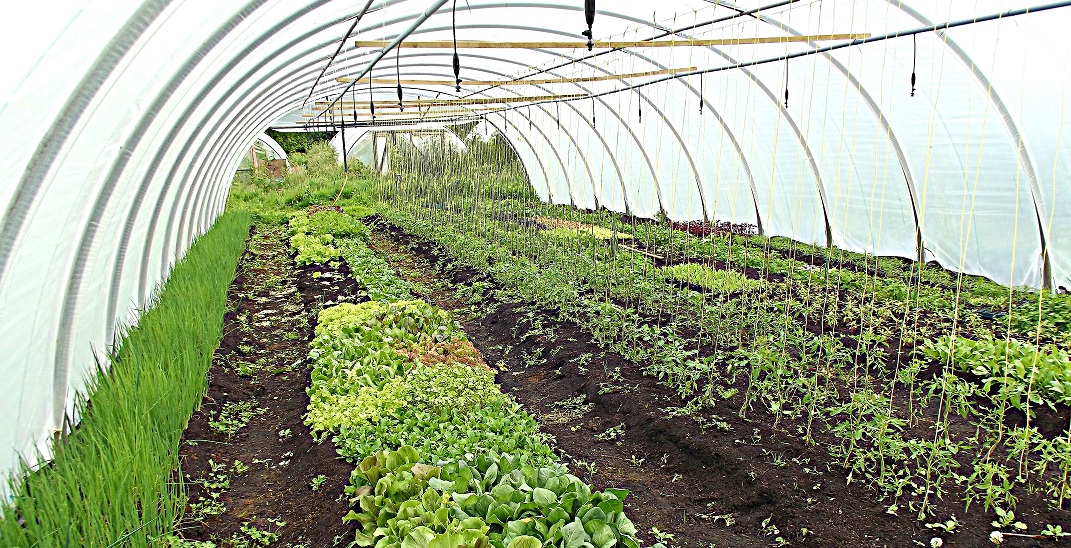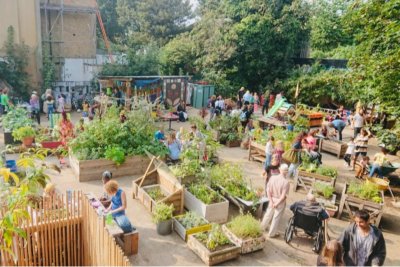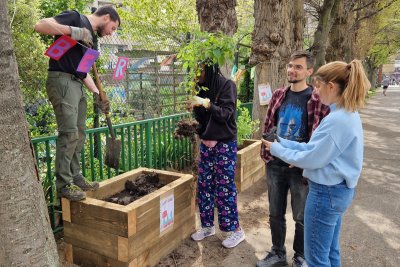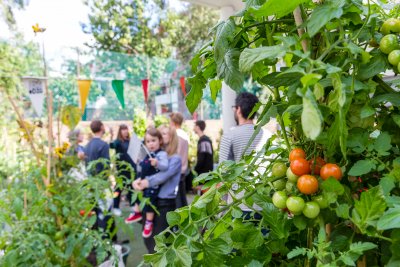Improving access to land for food production in Oxfordshire
Good Food Oxford produced a research report showing huge potential to convert land to horticulture in the County – over five times as much County Farm Estate land is used for horse pasture as for fruit and vegetable production.
This research focuses on how land might be made more accessible to promote a diverse, resilient, local food system in Oxfordshire. It focuses on the County Farm Estate, other land in the County and District Councils’ portfolios and privately own land and it considers alternative ways that land can be made accessible to provide opportunities to grow food for local communities. Land alone is not sufficient for building a resilient local food system. Attracting new entrants will require sufficient training and support, access to capital, appropriate infrastructure and reliable routes to market.
Some of the key findings include:
- Oxfordshire’s County Farm Estate is comparatively small but has huge potential to be diversified by reallocating arable land to grow fruit and vegetables: repurposing only 8 per cent of the estate to polytunnel or glasshouse horticulture would provide 10 per cent of fruit and vegetables for the county – a significant contribution to the resilience of local supply.
- There are many ways of managing a County Farm Estate to provide a range of benefits, from a return on investment of 5 per cent, to attracting innovative, entrepreneurial farmers to contributing to multiple Council objectives from climate change to education and public health.
- County Farms provide opportunities to new entrants that are not available on the private market.
- There are holdings within the County and District Councils’ land portfolios with the potential to be repurposed for food production.
- There are alternative models to County Farms that could improve access to land for local food production, such as Community Land Trusts and FarmStarts.
- Just one Oxford college owns enough land in Oxfordshire to produce over 50 per cent of Oxford’s vegetable consumption, or over 10 per cent of the entire County’s.
- The Church Commissioners own enough land in Oxfordshire to produce more than twice Oxfordshire’s annual vegetable consumption.
- Just half a 5-a-side-football pitch per school in Oxfordshire could grow a portion of vegetables for every pupil each week.
As next steps, Good Food Oxford propose a collaboration with the County Council to:
- Identify local authority policies and plans into which food production and access can be integrated.
- Review the County Farm Estate management plan to consider synergies with other Council policies and strategies, the viability of restructuring the County Farm Estate to include more fruit and vegetable production and to provide appropriately-sized starter and progression farms.
- Consider potential of reallocating portions of landholdings for food production using alternative models of ownership and tenancy such as selling the land to a community land trust, granting a farm business tenancy to a CIC FarmStart or granting a temporary lease for a community growing project.
- Engage with Good Food Oxford and other strategic partners to identify potential buyers/tenants, existing frameworks such as the Oxford Community Land Trust’s legal frameworks, potential opportunities such as Oxford Mutual Aid as a reliable route market and established projects who may be interested in expanding, for instance Cultivate and Oxford City Farm.
- Engage with other key landowners to explore further opportunities for local food production.
Good Food Oxford and Oxford Community Land Trust co-hosted an online event to present the report and discuss its findings with key stakeholders and the local community.
The full report is available on the Good Food Oxford website.
Sustain are encouraging more areas to launch Veg Cities campaigns and get local businesses and organisations making veg pledges. Veg Cities is a campaign of Sustainable Food Places and is run in partnership with Peas Please.
Published Monday 10 May 2021
Veg Cities: We need your help to get your city or local area growing, cooking, selling and saving more vegetables.






